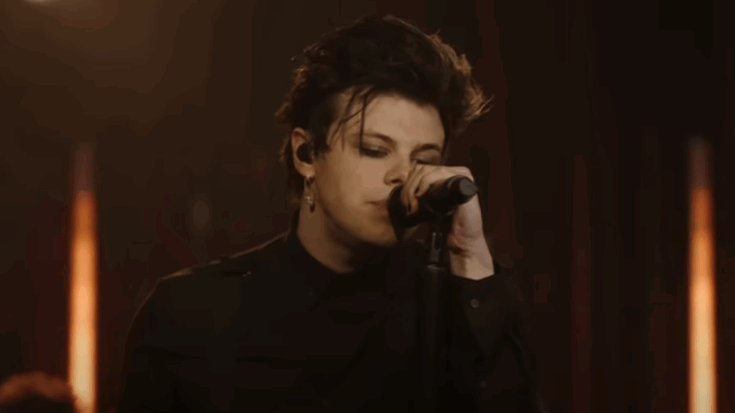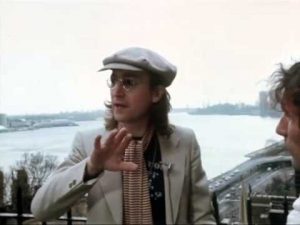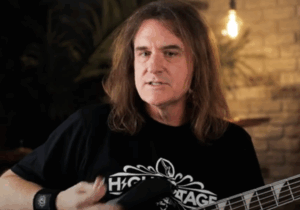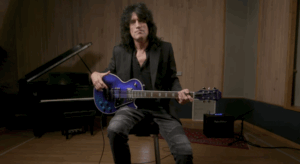Yungblud’s Comment About the New Sex Pistols Singer Might Not Sit Well With John Lydon

via YUNGBLUD / YouTube
Yungblud has never been shy about sharing his admiration for the punk greats who shaped his musical identity. In a recent interview with Lipps Service, the young rocker named the Sex Pistols’ Never Mind the Bollocks, Here’s the Sex Pistols as one of his all-time favorite albums. He praised its raw power, biting humor, and cultural significance, noting how the album helped him find his own sense of rebellion and individuality.
He also expressed his appreciation for the album’s artistic design, calling attention to Jamie Reid’s now-iconic cover art and the way it captured the chaotic spirit of 1970s Britain. For Yungblud, that record was more than just punk—it was a symbol of defiance, identity, and art colliding in one loud statement.
But what caught fans’ attention was how Yungblud transitioned from reminiscing about the Pistols’ past to discussing their present. He openly praised Frank Carter, the band’s new frontman, for successfully carrying the torch without imitating the original firestarter, John Lydon.
View this post on Instagram
Frank Carter’s Aggressive Revival
Frank Carter, best known for fronting Gallows and later Frank Carter & The Rattlesnakes, joined the Sex Pistols in 2024, stepping into one of punk’s most daunting roles. The collaboration has been both celebrated and scrutinized, given the band’s deep-rooted history and its complex relationship with its original singer.
Yungblud believes Carter’s approach is exactly what the Pistols need in this era—a balance of reverence and reinvention. “Frank’s killing it,” Yungblud said, emphasizing that Carter’s raw aggression and modern punk energy feel natural rather than forced. To him, Carter didn’t try to be John Lydon, which would’ve been a losing battle. Instead, he brought something entirely his own—less wit, more fury, and an intensity that electrifies audiences.
Yungblud even recalled watching Carter perform with the band at the Royal Albert Hall, calling it “iconic” and “amazing.” His reaction reflected what many in the crowd felt that night: that punk’s rebellious spirit wasn’t buried with the past—it’s alive, thrashing, and evolving.
John Lydon’s Disapproval
Not everyone, however, is thrilled with this new chapter. John Lydon, the man who was Johnny Rotten, has made it clear that he disapproves of the band’s revival without him. In an interview with Louder Sound, Lydon slammed the reunion as “karaoke,” dismissing the idea that anyone could truly replace him. His comments were laced with the same bite that made him infamous, a reminder that his defiant streak hasn’t softened with age.
Lydon’s relationship with his former bandmates has long been turbulent, marked by disputes over rights, royalties, and creative control. The latest revival only deepened those divides, as the remaining Pistols—Steve Jones, Paul Cook, and Glen Matlock—opted to move forward with Carter despite Lydon’s objections.
For fans, the controversy adds another layer to the Sex Pistols’ enduring mythology. Even decades after their explosive debut, the band continues to embody punk’s central tension: rebellion versus legacy, chaos versus control.
The Sex Pistols March On
Despite the drama, the Sex Pistols featuring Frank Carter show no signs of slowing down. Their performances at venues like the Royal Albert Hall and major festivals such as Download and Hellfest have been met with strong reviews. Critics have praised Carter’s stage presence and the band’s revitalized sound, describing it as a bridge between punk’s past and its future.
The new lineup’s success underscores how influential the Sex Pistols remain nearly 50 years after their formation. While purists might bristle at the idea of a Pistols show without Lydon, others see Carter’s inclusion as a natural evolution—proof that punk doesn’t need permission to evolve.
For Yungblud and a new generation of fans, this version of the Sex Pistols isn’t about nostalgia. It’s about keeping the fire alive—louder, faster, and unapologetically modern. Whether or not John Lydon approves, the band’s roar is echoing once again, shaking the walls of the establishment just like it did in 1977.












